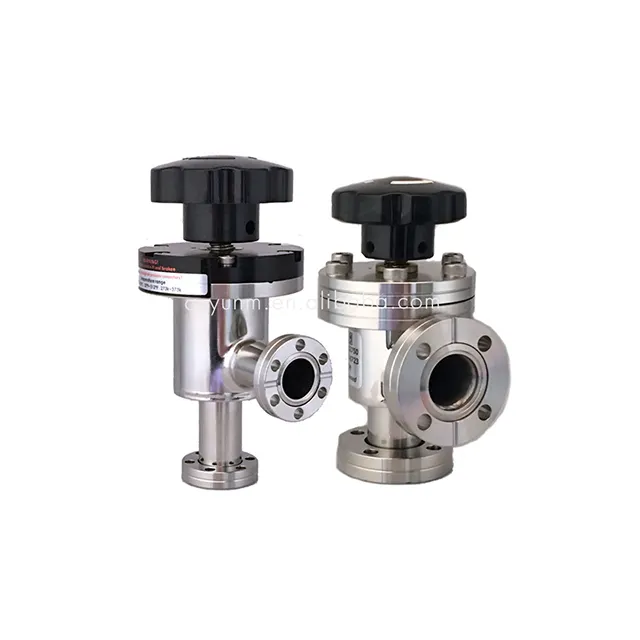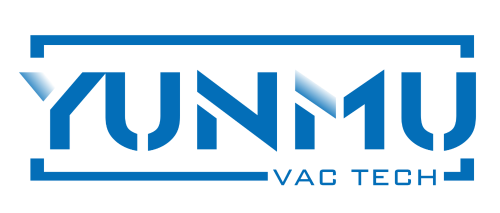Understanding the Impact of Advanced Vacuum Technology in Modern Manufacturing
In today's competitive industrial landscape, manufacturers are constantly seeking ways to enhance their production efficiency and reduce operational costs. Vacuum valves have emerged as a crucial component in modern manufacturing processes, offering remarkable potential for optimizing production lines and improving overall factory performance. These precision-engineered components play a vital role in controlling pressure systems, managing material flow, and ensuring consistent product quality.
The integration of vacuum valves into manufacturing systems has revolutionized how factories approach their operations. From food processing to semiconductor production, these essential components provide the precise control needed for maintaining optimal production conditions. As industries continue to evolve and demand higher standards of efficiency, the role of vacuum valves becomes increasingly significant in achieving these objectives.
Core Components and Functionality of Industrial Vacuum Systems
Essential Elements of Vacuum Valve Technology
At the heart of any industrial vacuum system lies the intricate network of vacuum valves that regulate pressure and flow. These components are engineered with precision to maintain specific pressure levels and control the movement of materials through production lines. The design of modern vacuum valves incorporates advanced materials and sophisticated mechanisms that ensure reliable performance under demanding conditions.
Each vacuum valve is carefully constructed to meet specific operational requirements, featuring components such as seals, actuators, and control mechanisms. The selection of appropriate materials and design specifications is crucial for ensuring optimal performance and longevity in industrial applications.
Operating Principles and Control Mechanisms
The functionality of vacuum valves relies on precise mechanical and electronic control systems. These systems work in harmony to maintain desired pressure levels and respond to changing production demands. Advanced control mechanisms allow for real-time adjustments and monitoring, ensuring consistent performance throughout the manufacturing process.
Modern vacuum valves incorporate sophisticated feedback systems that provide continuous monitoring and adjustment capabilities. This level of control enables manufacturers to maintain optimal operating conditions while minimizing energy consumption and reducing wear on system components.

Enhancing Manufacturing Efficiency Through Vacuum Technology
Streamlining Production Processes
The implementation of vacuum valves in manufacturing operations has demonstrated significant improvements in production efficiency. These components enable faster cycle times, reduced material waste, and more precise control over manufacturing processes. By maintaining consistent vacuum levels, manufacturers can achieve higher quality standards while reducing the likelihood of product defects.
Production lines equipped with advanced vacuum valves show marked improvements in throughput and reliability. The precise control offered by these components allows for optimized material handling and reduced downtime, contributing to overall operational efficiency.
Energy Conservation and Cost Reduction
One of the most significant advantages of implementing modern vacuum valves is their contribution to energy efficiency. These components are designed to minimize power consumption while maintaining optimal performance levels. The resulting energy savings can lead to substantial cost reductions in long-term operations.
By utilizing vacuum valves with superior sealing capabilities and efficient control systems, manufacturers can significantly reduce their energy overhead. This efficiency translates directly to improved bottom-line results and enhanced competitive advantage in the market.
Applications Across Different Industries
Manufacturing and Assembly Operations
Vacuum valves play a crucial role in various manufacturing and assembly processes. From automated pick-and-place operations to material handling systems, these components ensure precise control and consistent performance. The versatility of vacuum valves makes them indispensable in modern production environments.
Industries ranging from automotive manufacturing to electronics assembly rely heavily on vacuum valve technology. These components enable precise positioning, secure handling of delicate materials, and efficient movement of products through assembly lines.
Process Industry Applications
In process industries, vacuum valves are essential for maintaining product quality and ensuring efficient operation of various systems. Chemical processing, pharmaceutical manufacturing, and food production facilities all benefit from the precise control offered by these components.
The ability to maintain specific pressure levels and control material flow is crucial in process applications. Vacuum valves provide the necessary precision and reliability required for these demanding operations.
Maintenance and Optimization Strategies
Preventive Maintenance Protocols
Maintaining optimal performance of vacuum valves requires a comprehensive maintenance strategy. Regular inspection, cleaning, and component replacement help ensure consistent operation and prevent unexpected failures. Implementing preventive maintenance protocols can significantly extend the service life of vacuum systems.
Proper maintenance procedures include regular testing of seal integrity, verification of control system operation, and monitoring of wear patterns. These activities help identify potential issues before they impact production efficiency.
Performance Monitoring and Optimization
Modern vacuum valve systems benefit from advanced monitoring capabilities that enable continuous performance optimization. Data collection and analysis help identify opportunities for efficiency improvements and system upgrades. Regular performance reviews ensure that vacuum systems continue to meet production requirements effectively.
The implementation of monitoring systems provides valuable insights into system operation and helps maintain optimal performance levels. This information enables proactive maintenance and system optimization strategies.
Frequently Asked Questions
How do vacuum valves contribute to energy efficiency?
Vacuum valves improve energy efficiency by maintaining precise pressure control and minimizing air leakage. Their advanced sealing mechanisms and control systems ensure optimal operation with minimal power consumption, resulting in significant energy savings for manufacturing facilities.
What is the typical lifespan of industrial vacuum valves?
The lifespan of vacuum valves varies depending on operating conditions and maintenance practices. With proper maintenance and regular servicing, industrial vacuum valves can typically last 5-10 years. However, this can be extended through preventive maintenance and timely component replacement.
How often should vacuum valves be inspected and maintained?
Regular inspection and maintenance of vacuum valves should be performed at least quarterly, with more frequent checks in demanding applications. This schedule should include visual inspections, performance testing, and cleaning of components to ensure optimal operation and prevent unexpected failures.
Table of Contents
- Understanding the Impact of Advanced Vacuum Technology in Modern Manufacturing
- Core Components and Functionality of Industrial Vacuum Systems
- Enhancing Manufacturing Efficiency Through Vacuum Technology
- Applications Across Different Industries
- Maintenance and Optimization Strategies
- Frequently Asked Questions

